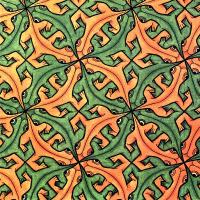Tin nhắn: 13
Nội dung: English
ShannonCC (Xem thông tin cá nhân) 14:27:35 Ngày 10 tháng 11 năm 2013
The example in the book is novaj tabloj.
Tabloj is easy but how do you pronounce novaj?
Also, just curious, which language inspired pluralizing adjectives?
jismith1989 (Xem thông tin cá nhân) 14:44:52 Ngày 10 tháng 11 năm 2013
ShannonCC:I'm having trouble with the plural ending of adjectives and was wondering if someone can just spell out phonetically how they are pronounced.Just read the J as though it were a Y: that's basically what it is (a semi-vowel). So the -ay ending is pronounced like the old-fashioned word 'aye' (meaning 'yes' ) or like the sound in 'my' or 'kite' or 'fly' etc., and the -oy ending is like the ending of the English word 'boy'.
The example in the book is novaj tabloj.
Tabloj is easy but how do you pronounce novaj?
Also, just curious, which language inspired pluralizing adjectives?
It's not pronounced like 'hay' or 'day' or 'gay', which it might look as though it would be, but that's because English is stupid and has various sounds for the letter A: Esperanto is more logical than that, it only has one sound. If you just pronounce the A the way it's always pronounced in Esperanto (like the A in the English word 'cat' ) and add a Y-sound to it, you'll be fine.
So nov-ay tab-loy.
Or if it helps, you can pretend you're speaking Pig Russian!

Most languages around the world have pluralizing adjectives: English is unusual because it doesn't, but I think Zamenhof (the creator of Esperanto) was influenced in the -oy sound (and it's orthography, i.e. how it's written with a J) from the Slavic languages, since he spoke Polish and Russian, which is why it sounds a bit Russian. I don't think it was one language in particular (mainly because Esperanto's grammar is very, very much easier than the grammar of the natural Slavic languages, so it wasn't a case of just copying how they do it), but I don't speak any Slavic languages, so I wouldn't really know. I've looked at Polish and Russian grammars online and can't find an especially direct link in terms of that sound being used for plural adjectives.
Another thing that most languages in the world have is grammatical gender (i.e. masculine, feminine and even neuter words). Every word in French, Spanish, Russian, German etc. has a gender that has to be remembered (e.g. in Spanish the difference between el hombre [the man] and la mujer [the woman], whereas Esperanto just uses la all the time, e.g. la viro kaj la virino, like we in English just 'the' all the time). But Esperanto being logical is like English in its simplicity there. So we're lucky that we don't need to deal with that! Russian, for example, has different endings based on whether a word is masculine, feminine or neuter (and also based on other things, like the role a word plays in a sentence, like Esperanto has the final N to show that a word is an object).
ShannonCC (Xem thông tin cá nhân) 15:23:12 Ngày 10 tháng 11 năm 2013
jismith1989: So the -ay ending is pronounced like the old-fashioned word 'aye' (meaning 'yes' ) or like the sound in 'my' or 'kite' or 'fly' etc., and the -oy ending is like the ending of the English word 'boy'.Thank you! Yes, I was pronouncing like hay and I knew it was wrong but was having trouble getting my brain around it. Your example of "aye" cleared it up for me.
It's not pronounced like 'hay' or 'day' or 'gay',
I didn't know many languages pluralized adjectives. Huh. And yes, I'm very glad we don't have to deal with gender

jismith1989 (Xem thông tin cá nhân) 15:40:56 Ngày 10 tháng 11 năm 2013
ShannonCC:Yeah, when it comes to pluralizing adjectives, French, for example, mainly just adds an S like we do with nouns (but there are some more complicated things, like Mont Blanc [White Mountain] versus les vaches blanches [the white cows]). Likewise, Spanish mainly just adds an S too (e.g. los hombres inteligentes [the clever men]). German and Russian are more complicated and have a variety of plural endings. To be fair, Chinese and Japanese don't have pluralizing adjectives, but they don't even have pluralizing nouns; their grammar is very simple (which isn't to say that they're simple languages, obviously they're not, learning the characters is very hard!). Indian languages like Hindi pluralize adjectives, and so does Arabic.jismith1989: So the -ay ending is pronounced like the old-fashioned word 'aye' (meaning 'yes' ) or like the sound in 'my' or 'kite' or 'fly' etc., and the -oy ending is like the ending of the English word 'boy'.Thank you! Yes, I was pronouncing like hay and I knew it was wrong but was having trouble getting my brain around it. Your example of "aye" cleared it up for me.
It's not pronounced like 'hay' or 'day' or 'gay',
I didn't know many languages pluralized adjectives. Huh. And yes, I'm very glad we don't have to deal with gender

lagtendisto (Xem thông tin cá nhân) 15:41:17 Ngày 10 tháng 11 năm 2013
jismith1989 (Xem thông tin cá nhân) 15:54:13 Ngày 10 tháng 11 năm 2013
spreecamper:Neoslavonic tutorial (naturalistic conlang) contains compact chapter about adjective plural forms inside Slavic languages.That's very useful, thanks. I suppose that the singular -o ending comes from Romance languages like Spanish and Italian anyway.
To go back even further, most of the European, Indian and Slavic languages have a common ancestor (i.e. they all evolved from a single source called Proto-Indo-European many thousands of years ago) and when the Slavic family broke off from that, it apparently added a Y-sound to the PIE ending. (The Y-sound came originally from a pronoun.) I know a little bit about this because I studied linguistics, but obviously I'm definitely not an expert in Proto-Slavic (but I would like to learn Russian at some point). Interesting stuff though.
As for the conlang, I have no idea why anyone would bother creating an artificial language with that many cases to memorize! It'd be just as easy to learn Russian or Latin or something -- though probably it's not so difficult for people who speak a Slavic language naturally anyway, and maybe having everyone learn Russian would be cultural imperialism (and reminiscent of Soviet times). It's certainly a better way to spend your time than playing sudoku!
ShannonCC (Xem thông tin cá nhân) 14:26:10 Ngày 12 tháng 11 năm 2013
Kiuj
Key you ee?
Bruso (Xem thông tin cá nhân) 15:09:54 Ngày 12 tháng 11 năm 2013
ShannonCC:Ahem. Apparently I can use some more help. All with the j ending.Two syllables, stress the first:
Kiuj
Key you ee?
KEY ooee
Nile (Xem thông tin cá nhân) 15:51:23 Ngày 12 tháng 11 năm 2013
Except "kiwi" is said like "KEEwEE" with the U/W sound very understated, while "kiuj" is more like "KEE-OOy" with the I/Y sound more understated.
Also, it should (as always)be stressed on its second to last syllable, assuming you stress it at all.
Here's a rundown of Esperanto's syllable nuclei/vowels.
Monophthongs:
a spa
e leg
i ski
o store
u rue
Falling diphthongs:
aj dry
ej they
oj joy
uj gooey (gooey is actually two syllables, but it's still close)
aŭ now
eŭ I don't think we have this sound in English.
For the rest, I guess just pretending the Js are Ys while remembering the sounds of aeiou should be good enough.
Rising diphthongs:
ja je ji jo ju
Triphthongs:
jaj joj
ShannonCC (Xem thông tin cá nhân) 18:57:56 Ngày 12 tháng 11 năm 2013
Like kuirejo. I think I'm pronouncing it right but every time I have to say it reeeeeeeeeeeeeeeeeeally sloooooooooooooooooooowly



